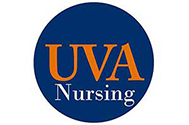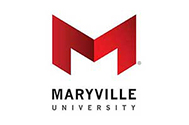5 Best Online BSN to DNP No GRE Programs for 2025
Written By: Darby Faubion BSN, RN
 Are you a BSN-level registered nurse who is considering an advanced career as a Doctor of Nursing Practice (DNP)? When choosing a nursing school, it is vital to pay close attention to each school's admission requirements. For example, standardized testing formats are required for some colleges. While some universities require prospective students to submit GMAT or GRE test scores, not all universities do. In this article, we will discuss the best online BSN to DNP no GRE programs and give you important information about each.
Are you a BSN-level registered nurse who is considering an advanced career as a Doctor of Nursing Practice (DNP)? When choosing a nursing school, it is vital to pay close attention to each school's admission requirements. For example, standardized testing formats are required for some colleges. While some universities require prospective students to submit GMAT or GRE test scores, not all universities do. In this article, we will discuss the best online BSN to DNP no GRE programs and give you important information about each.
What is GRE?
The Graduate Record Examinations, also known as GRE, is a type of standardized admissions test used by several graduate schools in the United States and Canada. It is a common admission requirement for graduate programs of study. The GRE is typically used to help determine the likelihood of whether a graduate school applicant will be successful in a master's or Doctorate program. The Graduate Record Examination (GRE) is used to test one's ability to communicate through verbal reasoning, analytical writing, and quantitative reasoning skills that a person has learned over a period.
What Exactly is an Online BSN to DNP No GRE Program?
An online BSN to DNP without GRE program is a doctorate in nursing degree program that does not apply restrictions on admission in the absence of GRE. A BSN to DNP program is tailored for BSN-trained registered nurses who wish to pursue a terminal nursing degree and advance their careers in a specialty area.
Pros and Cons of Pursuing Online BSN to DNP No GRE Programs
Opinions vary regarding whether choosing a BSN to DNP online no GRE program is the best option.
Pros of Pursuing BSN to DNP online program without GRE Requirement:
• If you have anxiety about taking big tests or are unsure of how well you will score on the GRE, pursuing a BSN to DNP without GRE program may help alleviate some of the stress.
• Pursuing an online BSN to DNP degree without GRE could benefit you if you have taken the test and not scored as well as you had hoped.
Cons of Pursuing BSN to DNP online program without GRE Requirement:
• A good GRE test score can boost an applicant's chances of being accepted into a program despite having little work experience or a lower undergraduate GPA of being accepted into graduate school. Applying to a BSN to DNP program that does not require a GRE means you won't be able to use GRE scores to improve the likelihood of your acceptance.
• The GRE has three sections of test content designed to determine a person's ability to perform skills that are important for graduate school success. The three sections are verbal reasoning, quantitative reasoning, and analytical writing. Pursuing a DNP degree without taking the GRE may leave you at a disadvantage when it comes to evaluating necessary skills.
Factors to Consider Before Choosing an Online BSN to DNP No GRE Program
If you are determined that you don't want to take the GRE, consider the following factors before deciding to pursue any one of the best BSN to DNP, no GRE online programs.
• Is the school accredited?
Accreditation is perhaps one of the most important things to consider before enrolling in any nursing or healthcare-related program. Accreditation is an indication that the program meets good standards of quality.• What other obligations do you have outside of school?
The idea of getting an education using an online source of education is appealing to many people. Before enrolling in an online program, take the time to consider what obligations you have, such as work or caring for a family. Then think about making a schedule that you can refer to that includes a set amount of study time. This will help you keep on track with both personal responsibilities and school obligations.• Are you planning to be a part-time or full-time student?
Your part-time or full-time enrollment status will influence the amount of time it takes you to complete a BSN to DNP program. If you need to complete the program in as little time as possible, you may need to consider full-time enrollment. This may mean changes in your work schedule or the need to ask other family members to assist with things that are usually your primary responsibility.• Make sure you have the recommended supplies
you need before beginning classes. Nothing can stall progress like beginning a project without the proper essentials. Students who enroll in an online path of study should, at a minimum, have:○ A laptop or tablet that is used exclusively for school
○ A webcam with a microphone or a smartphone with video chat capabilities for communicating with instructors when needed. While you may not need a webcam often, it pays to go ahead and have one available in case your instructor needs to communicate with you. If you need to demonstrate something to an instructor for clarity, a webcam or smartphone will come in handy. Good quality webcams can be purchased for as little as $20 online.
How Long Do Online BSN to DNP No GRE Programs Take to Complete?
Most typical online BSN to DNP programs that do not require GRE can be completed in as little as 36 months (3 years). This estimate is based on full-time enrollment. If you choose to enroll as a part-time student, it could take four years or longer to complete a BSN-to-DNP program. Other factors that may influence the amount of time it takes to finish a program is if you need to repeat any coursework at any time during enrollment.
How Much Do Online BSN to DNP No GRE Programs Cost?
If you want to move from a Bachelor of Science in Nursing (BSN) degree to a DNP, you may choose first to get an MSN degree. However, if you are interested in pursuing an advanced practice career or assuming administrative or teaching positions, a BSN-to-DNP bridge program may be a better fit for you. The BSN-to-DNP bridge program allows students to skip the step of earning an MSN degree.
Whether you choose to take a traditional BSN-to-DNP program or a bridge program can influence the program's cost. Other factors to consider that may affect the program's cost are whether you attend a public university or college or a private one and if the school is in the same state where you reside. If you enroll in a program that is not in the state where you live, you may be faced with paying out-of-state tuition and fees.
The cost of a DNP program can be as little as $30,000 up to over $200,000 depending on how long you attend school, the school's location, and whether you are required to repeat any coursework. When choosing the best BSN to DNP online, no GRE program, it's important to note that although the cost may be a factor, you want to find a program that will equip you to succeed.
Coursework
Although some courses are required for all BSN to DNP students, there may be variations in coursework depending on the specialty path you choose. Most BSN to DNP programs require students to take classes including:
• Pharmacology
• Comprehensive Health Assessment
• Pathophysiology
• Differential Diagnosis
• Evidence-Based Practice
• Advanced Statistics
• Leadership
• Economics and Health Policy
• Business Management and Administration
Clinical Training
Per guidelines established by the Commission on Collegiate Nursing Education (CCNE), Doctorate in Nursing Practice students are expected to complete a minimum of 1,000 post-BSN clinical practicum hours. Clinical experiences are typically arranged by a student and should be supervised by a preceptor.
While you may be expected to choose clinical sites to earn your practicum hours, each school designates guidelines regarding what types of clinical sites are acceptable. Therefore, it is important to talk with an academic advisor to ensure the locations you want to use for clinical training to meet the school's specifications.
Additionally, if you are attending an online BSN-to-DNP school as an out-of-state student, you should contact your state board of nursing to verify what requirements are needed for eligibility to engage in clinicals as a student in your state.
Admission Requirements For Online BSN to DNP No GRE Programs
Colleges and universities set admissions requirements for their respective schools and according to state and national guidelines. Although there may be some differences in admissions requirements from school to school, there are some general guidelines that most schools require.
Typically, minimum admissions criteria for a BSN-to-DNP program without GRE include the following:
• BLS certification
• Possess a current, unencumbered license to practice as a registered nurse
• Successful completion of a Bachelor of Science degree in nursing (BSN) with an average 3.0 GPA or higher for the duration of the BSN program
• Most schools require three academic or professional references and typically require that at least one reference is from a person with a Masters-level or higher
• Submit professional curriculum vitae or resume’
• Official transcripts from every post-secondary institution attended
Following are the 5 Best Online BSN to DNP No GRE Programs for 2025
1. Duke University - Durham, NC

The nurse practitioner pathway, which results in an MSN degree, offers students the choice of majoring in the following specialty courses:
• Adult-Gerontology Nurse Practitioner (Acute Care or Primary Care)
• Health Informatics
• Nursing and Health Care Leadership
• Nursing Education
• Psychiatric Mental Health Nurse Practitioner
• Women’s Health Nurse Practitioner
• Pediatric Nurse Practitioner (Acute Care or Primary Care)
• Family Nurse Practitioner
The nurse anesthesia option of the BSN to DNP program at Duke University is a 36-month program and requires 83 credits to complete. The curriculum for the nurse anesthesia program involves a combination of APRN, DNP, and nurse anesthesia specialty courses. Successful completion of this program means you will be equipped with the skills to administer anesthesia to patients across the lifespan in a variety of settings.
2. Johns Hopkins University - Baltimore, MD

The university offers online, online local, online with onsite course immersions, and hybrid options for becoming a DNP.
• The online course involves online-only courses leading up to required clinical rotations.
• The online local track allows students the opportunity to take online courses and engage in clinicals associated with the Johns Hopkins staff community in Baltimore. After completion of online coursework, you can work with the university’s faculty to arrange clinical within the Johns Hopkins partner network.
• The online with onsite course immersions track includes all online coursework and clinical assignments in your geographical region. In this track, students are required to attend seven on-campus immersions that involve standardized clinicals, leadership development opportunities, course competency assessments, and networking with Johns Hopkins University faculty and cohort members.
• Hybrid DNP track consists of most courses being offered online and some that require face-to-face encounters. With this track, students are required to complete clinicals in Baltimore.
3. Vanderbilt University - Nashville, TN

While all students are required to take the same core content, there are two optional focus areas offered. The optional focus areas have individualized educational tracks and involve taking an elective and clinical experience. The two focus areas offered at Vanderbilt University are hospitalist and intensivist.
Students who engage in online courses at Vanderbilt University can access course activities by participating in online discussion boards, watching class presentations online, completing tests online, and submitting online clinical logs. Viewing class presentations can be done as the class is being taught or by watching recorded audio or video files.
4. University of Virginia - Charlottesville, VA

The Post-BSN pathway allows BSN nursing graduates to complete their master's degree coursework and move into the DNP program. The tracks of study available to students who choose the Post-BSN program include the following.
• Adult-Gerontology Acute Care NP
• Adult-Gerontology Acute Care CNS
• Family NP
• Neonatal NP
• Pediatric NP: Primary Care
• Pediatric NP: Acute Care
• Psychiatric-Mental Health NP
The Post-MSN pathway is designed to give nurses who have attained advanced education in a specific clinical specialty to pursue the highest level of nursing practice. Candidates can choose to attend school part-time or full-time. Part-time students can typically complete the Post-MSN pathway in about three years, and full-time students can expect to complete the program in as little as two years. Successful completion of the Post-MSN pathway involves completing an additional 40 credits beyond the master's degree. Post-MSN students are credited with 500 DNP practicum hours toward the 1000 required hours. The remaining 500 practicum hours are completed during the DNP practicum courses.
5. Maryville University - St. Louis, MO

○ Adult-Gerontology Primary Care Nurse Practitioner (AGACNP)
○ Adult-Gerontology Acute Care Nurse Practitioner (AGACNP)
○ Pediatric (Primary Care) Nurse Practitioner (PNP)
○ Family Nurse Practitioner (FNP)
○ Psychiatric Mental Health Nurse Practitioner (PMHNP)
• The BSN to DNP program offered at Maryville University is accredited by the Commission on Collegiate Nursing Education (CCNE).
Career Opportunities
The are several high-level career opportunities for DNP prepared nurses after completing an online BSN to DNP program. The following are examples of possible job opportunities for DNP graduates.
• Chief Nursing Officer:
Chief nursing officers oversee the planning, coordination, and management of patient care within various nursing units. They serve as liaisons between peers and patients and promote healthy work relationships between hospital executives.• Advanced Practice Registered Nurse:
One of the perks of choosing to work as an Advanced Practice Registered Nurse (APRN) is the freedom you will have to work independently. Please note, each state determines whether an APRN can work entirely independently or if they require physician oversight.• Nurse Researcher:
As a nurse researcher, you may work in an academic setting or in a laboratory. The task of a nurse researcher involves discovering evidence that helps promote the advancement of the healthcare practitioner field.In addition to the careers mentioned above opportunities, after completion of a BSN to DNP program, you may find employment opportunities at:
• University or Colleges as a nursing instructor
• Walk-in clinics
• Nurse-managed clinics
• Privately-owned medical offices
• Military and veterans' hospitals/facilities
Earning Potential
A DNP's role requires a strong sense of independence, responsibility, and a willingness to be a leader in the nursing industry. For those who choose to take on the responsibility of becoming a DNP, salary increases are a significant perk.
Some examples of salaries within different DNP roles include the following.
• Certified Registered Nurse Anesthetists have an earning potential of anywhere between 157,33 to $218,451, with an average median salary of $186,131.
• Nurse practitioners earn an average of $109,431 annually, ranging from $84,357 to $127,477.
• Clinical Nurse Specialists can expect to earn an average of $106,989 annually, ranging from approximately $87.397 to almost $126,483.
Job Outlook
The outlook for job opportunities for DNP-prepared nurses is favorable for several reasons.
• According to the Health Resources and Services Administration (HRSA), there is a current shortage of primary care providers of approximately 7,000 physicians. In fact, in 2017, the Association of American Medical Colleges (AAMC) predicted that the United States would experience a physician shortage between 40,000 and 105,000 by 2030. As a result of this and other studies, opportunities for non-physician clinicians such as DNPs can potentially increase job opportunities, especially in primary care settings.
• Currently, 23 states allow DNPs to own and operate clinics. These nurse-run clinics help offer increased access to healthcare within communities.
• The advancements in technology related to healthcare require nursing leaders to advance their knowledge to keep up with progressive changes.
• The American Association of Colleges of Nursing (AACN) reports faculty shortages in nursing schools across the United States. This results in limited availability for student capacity in colleges and the need for more advanced level nurses to fill the positions of nurse educators.
Bottomline
Choosing from the best online BSN to DNP no GRE programs can feel overwhelming if you don't know where to begin. Using the information in this article as a guideline for factors to consider as you research BSN to DNP programs can help make the decision a little easier. The most important thing to remember is, if you want to become a DNP, go for it! Endless possibilities are waiting for you!
Frequently Asked Questions Answered
Do Most Online BSN to DNP Programs Require GRE for Admission?
While some online BSN to DNP programs do still require the GRE for admission, many do not. While the idea of not taking the GRE might be appealing to you, it may be a good idea to talk with an admissions counselor before you opt not to take the test. Be sure and ask the counselor if submitting good GRE scores will increase your likelihood of acceptance into the program. Even if it is not required, if your overall GPA at previous schools was not high, you may want to consider taking the GRE anyway.If I don’t send my optional GRE scores, will it reduce my chances of admission?
If a school’s admissions policy states that GRE scores are optional, it is unlikely you would be penalized for not sending them. However, if you have taken the GRE and scored well, sending your scores may increase your chances of being admitted into the program before non-GRE test takers. Remember, though, if your scores are lower than what you had hoped, if sending scores is truly optional, you may want to keep them to yourself! Darby Faubion BSN, RN
Darby Faubion BSN, RN
Darby Faubion is a nurse and Allied Health educator with over twenty years' experience. She has assisted in developing curriculum for nursing programs and has instructed students at both community college and university levels. Because of her love of nursing education, Darby became a test-taking strategist and NCLEX prep coach and assists nursing graduates across the United States who are preparing to take the National Council Licensure Examination (NCLEX).